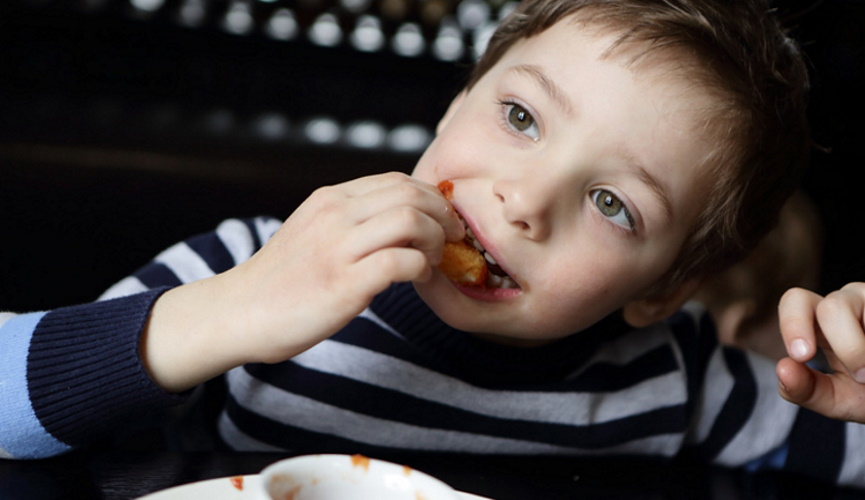It’s a common belief that staying married is a selfless choice for the sake of your children. But in reality? It’s way more complex. While there are certainly cases where divorce or separation can be more traumatic for a child, there are also many reasons why being in an unfulfilling marriage may ultimately do more harm than good.
1. Children need authenticity

Kids are like sponges. They absorb the atmosphere of their home, picking up on tension and unhappiness even if it’s not explicitly stated. A loveless marriage creates a strained and stressful environment that can negatively impact their emotional security and sense of well-being.
2. You Can’t Pour from an Empty Cup

Imagine trying to fill someone else’s cup with love and support when your own is empty. An unhappy parent is a depleted parent. By prioritizing your happiness, you refill your emotional cup, allowing you to be a more patient, loving, and present parent to your children.
3. Divorce can teach them about resilience

Separation can be challenging, and, depending on the age of your child, can certainly shake up their life. But this can also be a display of resilience! By tackling these challenges, you show your children that it’s okay to face difficult situations head-on and prioritize their well-being—and that they’ll often come out stronger on the other side.
4. They need to know what love looks like

Children learn about love through observation. Staying in an unhappy marriage might teach them that love is about sacrifice, compromise, tolerating negativity, or the need to keep up appearances. When you choose happiness (even if it’s the harder path) it gives them an example of what to look for in love.
5. Your children may feel like they need to be the parent

If your marriage has conflict and you’re obviously unhappy, your child might take it upon themselves to be your source of happiness. This is not only unfair and stressful, but inappropriate—a child shouldn’t provide their parents emotional support and they are certainly not responsible for caretaking. Allowing this to happen could stunt their development.
6. You avoid giving them unrealistic expectations

Oftentimes when a marriage is unhappy but the parents stay in it anyway, it sets a false sense of hope for the child. Your kid thinks that maybe, just maybe, the marriage will miraculously heal and the family unit will be back to what it once was. But, this can put a ton of pressure on them—they might feel responsible for keeping you two together, and if they can’t? It can lead to feelings of guilt.
7. Two happy homes are better than an unhappy one

A healthy separation doesn’t have to mean broken homes. It can create two loving environments where children can experience the full spectrum of love and support. While the structure will likely change, the love remains, allowing children to feel secure and cared for.
8. It can affect your child’s grades

The stress and emotional turmoil resulting from a less-than-stellar home life can significantly impact a child’s academic performance. Studies have shown a strong correlation between parental conflict and lower academic achievement. How can they focus on school when home feels like a battlefield?
9. Real families are diverse

Staying in an unhappy marriage to uphold the illusion of an intact, traditional household can prevent children from understanding different family structures. Witnessing the diversity of single parents, blended families, and same-sex couples can broaden a child’s perspective and prevent the assumption that the nuclear family is the only valid model.
10. It can impair their emotional regulation

Whether it’s conflict, tension, instability, or just an air of unhappiness, the stress of being around parents who shouldn’t be together can overwhelm a child and hijack their capacity for healthy emotional regulation. This can lead to emotional outbursts, dissociation, and complete emotional shutdown and that can make a child severely struggle to control impulses, tolerate frustration, and navigate social interactions.
11. It can impact their relationship with their siblings

The stress and discord of an unhappy household can strain the bonds between siblings, especially if they pick different sides. This robs your children of the opportunity to develop the close, supportive relationships that act as a necessary lifeline as they grow older.
12. It can make your child a people-pleaser

When you stay in a marriage that isn’t happy, it sends the message that you must always put the needs of others before your own. As your child grows up and starts living life on their own, this can seriously hinder their ability to set personal limits and pursue the things that authentically light them up.
13. You’re not a martyr

The idea that suffering in silence for your children is a badge of honor is a myth. Your children don’t need a martyr; they need a happy, well-adjusted parent. Walking away instead of staying in the marriage just for the sake of it allows you to be the most patient, loving, and supportive parent you can be.
14. You’re showing them how to have healthy boundaries

A mature separation teaches children the importance of setting and respecting boundaries, which is a crucial skill that’s hard to learn later in life. You want your children to know that it’s okay to put themselves first and prioritize their emotional needs while still being respectful and caring of others.
15. You’re creating less stress in the long-term

It might seem counterintuitive and, sure, getting separated does present a whole new host of issues. But being in an unhappy marriage and living in a household with tension and negativity is a breeding ground for stress. We know stress is bad for everyone, especially kids, so taking it upon yourself to be a little uncomfortable in the short term so everyone can thrive in the long term is the way to go.
16. It could diminish their capacity to be vulnerable

Like we said, children learn about love, relationships, and life from observing their parent’s behaviors. If a child grows up around a lack of emotional intimacy and honesty between their parents about wanting to be together or their overall happiness, this can affect the child later in life. It can make them reluctant to open up and be vulnerable in their friendships and romantic relationships.
17. Staying in an unhappy marriage distracts you

If your main challenge every day is maintaining the facade of a happy marriage, then that takes a lot of energy. Focusing on putting on a happy face can take attention away from the needs and wants of your children. We’re not saying you can’t do both, but when you’re genuinely happy you’re more present.
Enjoy this piece? Give it a like and follow PsychLove on MSN for more!




